June 2019
Includes:
Inequality: The New Gilded Age
A conversation between Ernest Hemingway and F. Scott Fitzgerald reportedly went like this: Fitzgerald says, “The rich are different from you and me.” To which Hemingway responded, “Yes, they have more money.” You bet they do. And now more than ever. The old Gilded Age pales in comparison to the current one. The wealthy of the late 19th century: Rockefeller, Vanderbilt and Mellon look impoverished in relation to the current crop of Bezos, Gates and Buffet. Inequality is at record levels. How has it happened? The attack on unions has hurt workers. CEO pay has gone through the roof. There have been massive tax cuts for the haves while the have-nots see their social safety net eroded. The enormous excesses of the first Gilded Age led to a populist backlash and the Progressive Era. Could we see a repeat of that today?
The Decision That Has To Be Made
Noam Chomsky warns, “There has to be some kind of Green New Deal if we’re going to survive. The human species is facing questions that have never arisen before. Is organized human life going to survive in any recognizable form? We’re approaching the level of global warming of roughly 125,000 years ago when sea levels were about 25 feet higher than they are now. You don’t have to have much of an imagination to know what that means. Well, shall we race towards it the way the Trump administration and the Republican Party want us to do? Shall we do something about it, the way Sunrise Movement and Extinction Rebellion and Ocasio-Cortez want to do? That’s the decision that has to be made.” Interview by David Barsamian. Recorded at the University of Arizona.
The Anti-Democratic U.S. Constitution
The title of this program may come as a surprise to some. The Constitution is considered by many in the United States as a sacred document. Its framers are venerated as demi-gods. The Founders, white men, slave owners and holding property shaped a document that would codify and entrench their class power and privilege. It was crafted to benefit the few at the expense of the many. The delegates in Philadelphia in 1787 made sure that the interests of the wealthy were secured and that democracy, rule of the people, was constrained and limited. “The property less multitude,” which James Madison recognized as “the majority faction” was a “danger” to be contained. The “unequal distribution of property” was a political powder keg for the framers hence the need to maintain “the spirit and form of popular government” with only a minimum of substance.
Toward the Abolition of Incarceration
The U.S. is Number One. America is first in the world in having 2.3 million people behind bars. They are held in state prisons, federal prisons, county jails, juvenile correctional facilities and other lockups. The prison industrial complex costs state and federal governments billions of dollars annually. Every year, over 600,000 people go to prison. Yet mass incarceration has not been a deterrent to crime, nor reduced societal problems of poverty and racism that drive tens of thousands of people to jails and prisons annually. It has even been argued that our penal system actually exacerbates societal problems. The movement for abolition, with its proud history of challenging slavery, should be applied today to the abolition of prisons. Ruth Wilson Gilmore says abolition is not just about closing prisons. She urges us to address the problems that make us "the incarceration nation."
Speakers
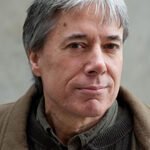
Chuck Collins
Chuck Collins is director of the Program on Inequality and the Common Good at the Institute for Policy Studies. He is author of Born on Third Base, 99 to 1 and Is Inequality in America Irreversible?
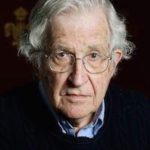
Noam Chomsky
Noam Chomsky, by any measure, has led a most extraordinary life. In one index he is ranked as the eighth most cited person in history, right up there with Aristotle, Shakespeare, Marx, Plato and Freud. His contributions to modern linguistics are legendary. In addition to his pioneering work in that field, he has been a leading voice for peace and social justice for many decades. Chris Hedges says he is “America’s greatest intellectual” who “makes the powerful, as well as their liberal apologists, deeply uncomfortable.” The New Statesman calls him “the conscience of the American people.” He is Professor Emeritus in the Department of Linguistics and Philosophy at MIT and Laureate Professor of Linguistics and Haury Chair in the Program in Environment and Social Justice at the University of Arizona. At 95, he continues to inform and inspire people all over the world. He is the author of scores of books, his latest are Consequences of Capitalism, Chronicles of Dissent and Notes on Resistance.
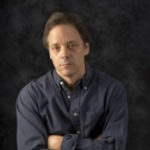
Paul Street
Paul Street is an independent social critic, commentator and award-winning journalist. He is the author of many books including The Empire’s New Clothes and They Rule: The 1% v. Democracy. His articles appear in Truthdig, Z and CounterPunch.
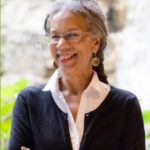
Ruth Wilson Gilmore
Ruth Wilson Gilmore is director of the Center for Place, Culture, and Politics and a professor of geography at the City University of New York. She is the author of Golden Gulag: Prisons, Surplus, Crisis, and Opposition in Globalizing California. The American Sociological Association honored her with its Angela Davis Award. She is the recipient of the Lannan Cultural Freedom Prize.



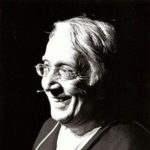

Reviews
There are no reviews yet.